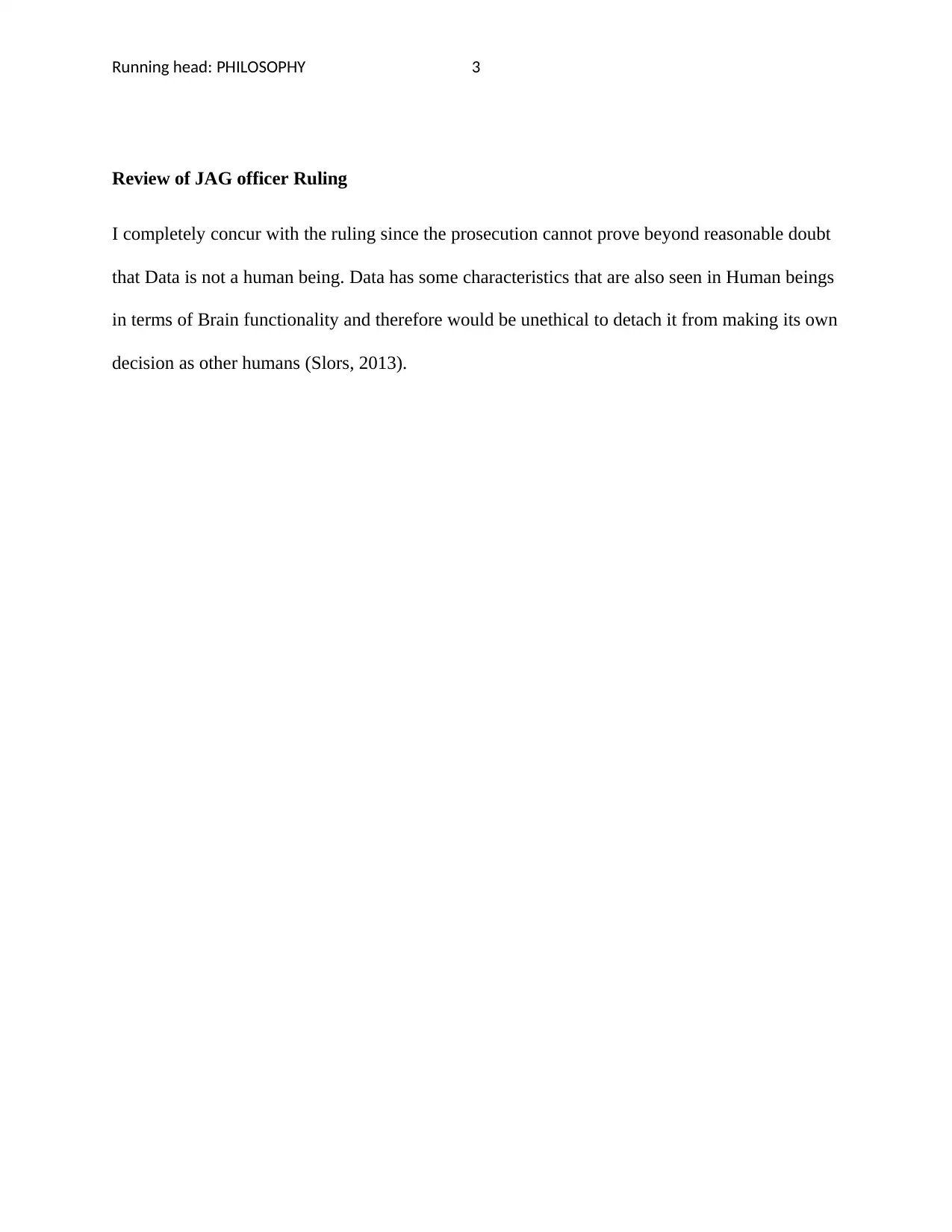Picard vs. Maddox: A Philosophical Analysis of Data's Personhood
VerifiedAdded on 2023/05/31
|4
|658
|375
Essay
AI Summary
This essay explores the contrasting philosophical viewpoints of Picard and Maddox concerning the artificial intelligence Data and his rights as a sentient being. Picard argues for Data's personhood, emphasizing his capacity for thought and self-determination, reflecting a materialistic view of the mind-body problem. Conversely, Maddox adopts a dualistic perspective, asserting that Data lacks the essential components of a human being, namely a soul or spirit. The essay also reflects on the ethical considerations of treating machines with moral regard, ultimately arguing against the obligation to grant machines the same dignity afforded to humans due to their lack of a soul. Furthermore, the author concurs with the JAG officer's ruling that Data cannot be definitively proven non-human, thus supporting his right to self-determination.
1 out of 4








![[object Object]](/_next/static/media/star-bottom.7253800d.svg)